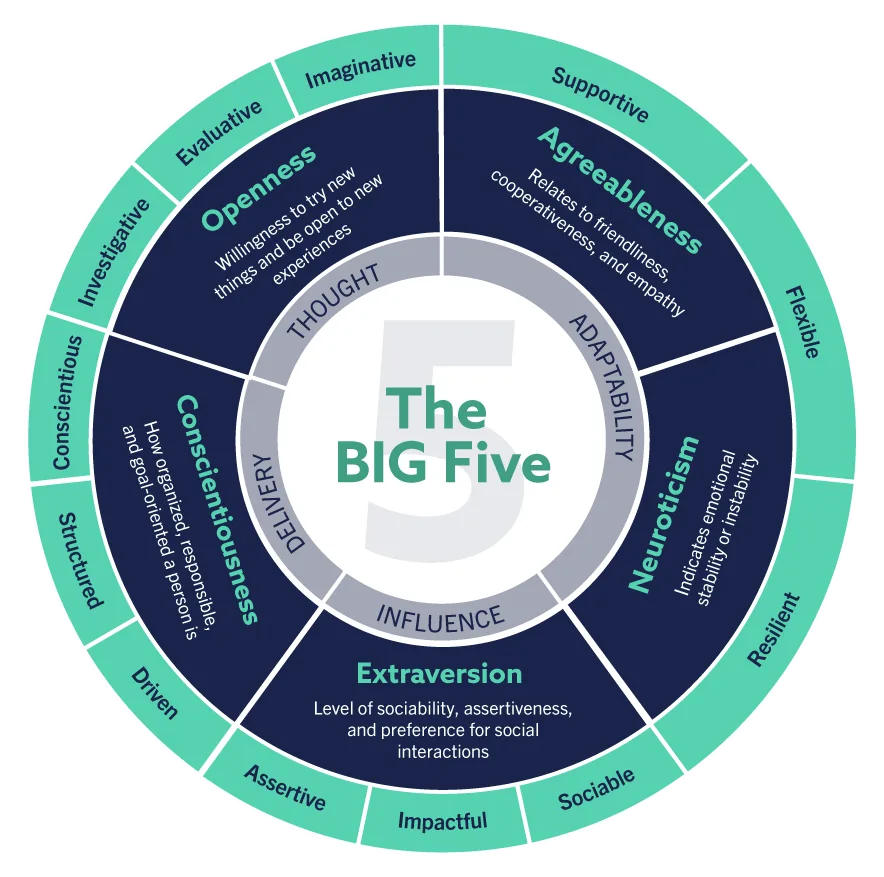Article · 4-minute read
By Olivia Black – 19th March 2025
As a Business Psychologist, I often encounter the familiar “You must be a mind-reader,” when discussing my profession. I’m sure many in the field can relate to this response.
While this notion is far from reality, it highlights the persistence of stereotypes in various forms. Job occupations, in particular, tend to evoke ingrained perceptions of personalities based on roles; think of the nurturing nurse or the introverted software developer.
But are these stereotypes accurate? Can our personalities truly guide us towards careers where we excel? And for organizations, can personality assessments help identify individuals who are likely to perform well in specific roles?
Research from the University of Edinburgh delves into these questions, suggesting there might be some truth to occupational stereotypes. In this article, we explore the findings and share key insights and considerations for our work with clients at Saville Assessment.
The Big Five personality model is a cornerstone in the study of human behavior, encompassing five distinct traits: Openness, Conscientiousness, Extraversion, Agreeableness, and Neuroticism.

While its simplicity makes the Big Five accessible to both researchers and individuals interested in personality, its predictive power has solidified its status as a reliable framework. Unsurprisingly, the University of Edinburgh utilized this model in their study, measuring thousands of individuals across over 250 occupations to investigate whether personality traits influence career paths.
It turns out that many occupational stereotypes may indeed be quite accurate. Some examples include:
Advertising and public relations managers, actors, events managers, and sales & marketing managers scored highest in extroversion, thriving on interactions with people.
Software developers, web developers, and electronic engineers were among the lowest scorers in extroversion, the inverse of which is typically interpreted as introversion.
Creative roles such as artists, designers, and writers tended to have high levels of openness to new experiences and curiosity, as well as neuroticism.
Managers, particularly finance managers, along with ship deck crew and engineers, exhibited high levels of conscientiousness, being organized and reliable.
Chefs and board members scored lower in agreeableness, indicating a tendency to challenge others.
The findings from this study reveal that certain personality traits are more prevalent in specific occupations, often aligning with common stereotypes.
It underscores the effectiveness of profiling and person-job matching using personality tools like our Wave questionnaires. Our Role Profiler tool, part of our next-generation platform Wave Connect, quickly identifies the critical behavioral areas needed for a role. By having candidates complete a Wave questionnaire, you can explore their individual traits and see how well they match the role. This approach increases the likelihood of selecting the right people for the job, leading to better retention and performance.
It highlights the importance of understanding your own personality to shape your career path. Self-insight into your strengths and weaknesses can guide your career choices, steering you toward roles that align with your preferences. It can also support skills development by identifying tasks that you might find easier than others.
Self-report assessments often face scrutiny regarding their accuracy. It’s crucial to verify the scientific foundation and validation of any assessment tool you use. Robust models and assessment tools can uncover insights that might otherwise remain hidden. Personality assessments are among the most predictive methods for drawing data insights, enabling evidence-based decisions in talent management.
This study demonstrates that some personality traits are indeed linked to job occupations and job performance. Having the right traits can lead to better job performance, making personality assessments vital for identifying person-role fits. At Saville Assessment, we streamline this process with a simple role fit score through Wave Connect, making it efficient and accessible.
Ultimately this aligns with our purpose of enabling our clients to identify the right people, in the right roles, powered by science.
Get in touch to discuss how Saville Assessment can help your organization place the right people in the right roles, powered by science.
Olivia is an Associate Director at Saville Assessment and heads up our Client Solutions team.
You can connect with Olivia on LinkedIn here.


The landscape of Diversity, Equity, and Inclusion (DEI) is shifting, and organizations are facing increased scrutiny over their related initiatives; especially those in hiring, development and talent management.
11th Mar, 2025

The modern workplace is more global than ever and leaders must be able to manage and inspire diverse groups across cultures. In this article we look at why making the right hiring and promotion decisions is crucial.
27th Feb, 2025

As organizations strive to improve both the quality and the efficiency of hiring processes, a question arises; can generative AI provide a valuable shortcut for role profiling without compromising accuracy and fairness?
21th Feb, 2025
© 2025 Saville Assessment. All rights reserved.